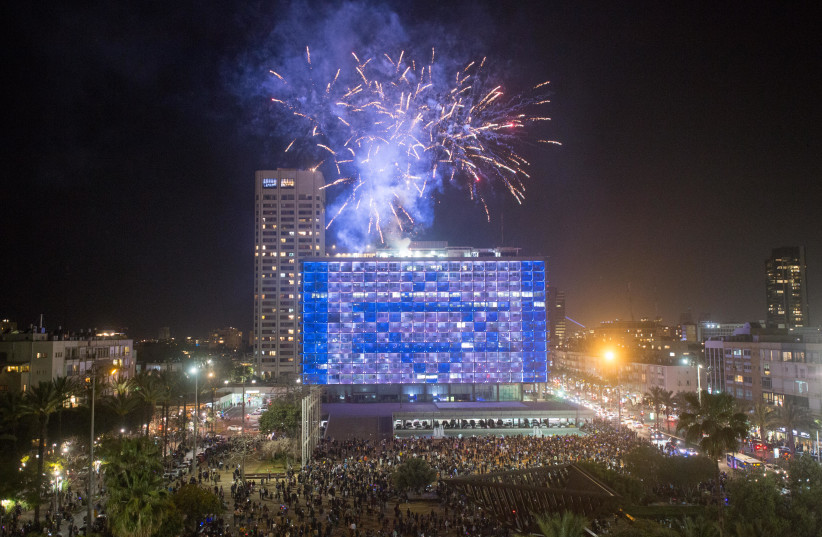The country is in that unique annual period: marking Remembrance Day back to back with Independence Day that starts on Wednesday night.
This year, a decision by Sports and Culture Minister Chili Tropper to scrap the traditional fireworks at the Mount Herzl ceremony has caused much debate. Several local municipalities, including Tel Aviv, Herzliya, Netanya, Ra’anana and Ramat Gan, have followed suit; others, including Beersheba, are sticking to the traditional festivities that include fireworks displays, at least for this year.
Tropper’s decision was based on requests from IDF veterans suffering from PTSD who say that the sound of explosions is traumatizing. Announcing his decision last month in a Facebook post, the minister wrote: “For most Israelis, fireworks may be a nice image in the sky, but for them it is the sound of gunfire and battle. They have fought enough. They have paid a heavy price. This year we are reaching out to them.”
As a result of Tropper’s decision, the national ceremony will sport a silent pyrotechnic show instead of the explosive sound and sight of fireworks. But is this is really the best way to help PTSD victims.
Much of the debate was triggered by the excruciating story of IDF veteran Itzik Saidan, who this time last year self-immolated outside the Defense Ministry’s rehabilitation offices in protest at the bureaucratic run-around that he and other post-trauma sufferers have had to endure.

Miraculously, Saidan, in his mid-20s, survived, although a year later he is still receiving intensive medical treatment.
Saidan quickly became a symbol of those who carry wounds that cannot be seen. His act of desperation shocked the system into action, and the rehabilitation procedure for PTSD sufferers has undergone improvement. Above all, he drew awareness to the very real distress and struggles of the “shell-shocked.”
Following Saidan’s protest, Defense Minister Benny Gantz launched the One Soul reforms that included bills and amendments increasing eligibility for compensation; a 24/7 hotline for those suffering PTSD; crisis homes for those suffering severe mental breakdowns; and other administrative reforms.
This is an encouraging start, and we hope that more steps will be taken to ease the burden of PTSD sufferers. These men and women are heroes who have paid a very high price for their service to the country. They deserve help and solidarity.
This paper empathizes with their plight, and the upcoming issue of The Jerusalem Post Magazine carries a cover story on “The battle for IDF soldiers’ mental health.” Nonetheless, we are wary of the value of steps taken such as banning firework displays.
Veterans and others suffering from trauma need real recognition year-round help, not shallow acts once a year, particularly if those measures deprive the vast majority of the population of something that brings them joy.
We also wonder where this will lead. Will the country decide to stop the traditional sirens for Holocaust Remembrance Day and Remembrance Day, because for so many the sound of the siren is a painful reminder that we still regularly suffer from rocket barrages? Will it decide to stop barbecues because of the second-hand smoke, or because so much meat consumption insults vegans?
Fireworks are a traditional part of the celebrations, like the IAF flypasts. Every year, children stay up to watch the shows and people plan their evenings around where they can get a good view. Indeed, fireworks worldwide are a way of celebrating national days and major events.
Israel’s strength lies in its solidarity. Those suffering from PTSD need recognition and assistance all year, not just on Remembrance Day. Banning fireworks will not solve their problems. They need help for emotional well-being, maintaining relationships and suicide prevention, as well as accessible appropriate medical treatment.
As Israel turns 74, the country remembers those who fell while serving and protecting it, and the citizens killed by despicable terrorists. It also salutes the wounded – those suffering from physical injuries, and those suffering from emotional wounds. But the country also has much to celebrate. Nothing marks that switch from somber remembrance to celebration like the fireworks. To carry on enjoying life, thriving and growing from year to year is our ultimate victory over our enemies.
